Suman Kalyanpur, a popular singer of the 50s and 60s who was famous for her sweet voice that resonated with emotion and melody. Some of her most famous songs include “Na Tum Humein Jano,” “Aajkal Tere Mere Pyar Ke Charche,” “Behena Ne Bhai Ki Kalai Se,” “Tumne Pukara Aur Hum Chale Aaye,” and “Mera Pyar Bhi Tu Hai.” “Chura Le Na Tumko Yeh Mausam Suhana,” “Thehriye Hosh Mein Aa Loon,” “Dil Ne Phir Yaad Kiya,” and many more.
In an Interview when someone asked Lata ji about Suman Kalyanpur, she told that She was going to sing that lullaby and even rehearsed for it but later on Mohammad Shafi’s asking she gave that song to Suman, which become her first song.
Lata Mangeshkar
Early Life
Born on January 28, 1937, in Dhaka, as Suman Hemmadi, into a family originally from Mangalore, Karnataka. Her father, Shankar Rao Hemmadi, worked in the Central Bank of India and was posted in Dhaka for a significant period. In 1943, her family moved to Mumbai, where Suman received her musical training. After completing schooling at Mumbai’s famed St. Columba High School, she got admission to the prestigious Sir J. J. School of Arts for further studies in painting.
She found her passion for music and painting at an early age and started learning classical vocals from Pandit Keshav Rao Bhole. When her interest grew in music, she started learning it professionally from Ustad “Khan, Abdul Rehman Khan” and Guruji “Master Navrang.”
The Starting of Suman Kalyanpur
Suman Kalyanpur’s journey in the music industry began with her first public performance on All India Radio in 1952. Her debut in playback singing came with the Marathi film “Shukrachi Chandni” (1953). Actor/filmmaker Sheikh Mukhtar noticed her when she worked in “Shukrachi Chandni”. Mukhtar gave her a break under “Mohammad Shafi” in Mangu (1954), who recorded three songs with her. Later Mohammad Shafi was replaced with OP Nayyar and all the song were replaced. But her lullaby “Koi Pukare Dheere Se Tujhe” was retained in the film.
In an interview when someone asked Lata Mangeshkar about Suman Kalyanpur. Lata told that she was going to sing that lullaby and even rehearsed for it. But later on, at Mohammad Shafi’s asking, she gave that song to Suman, which became her first song.
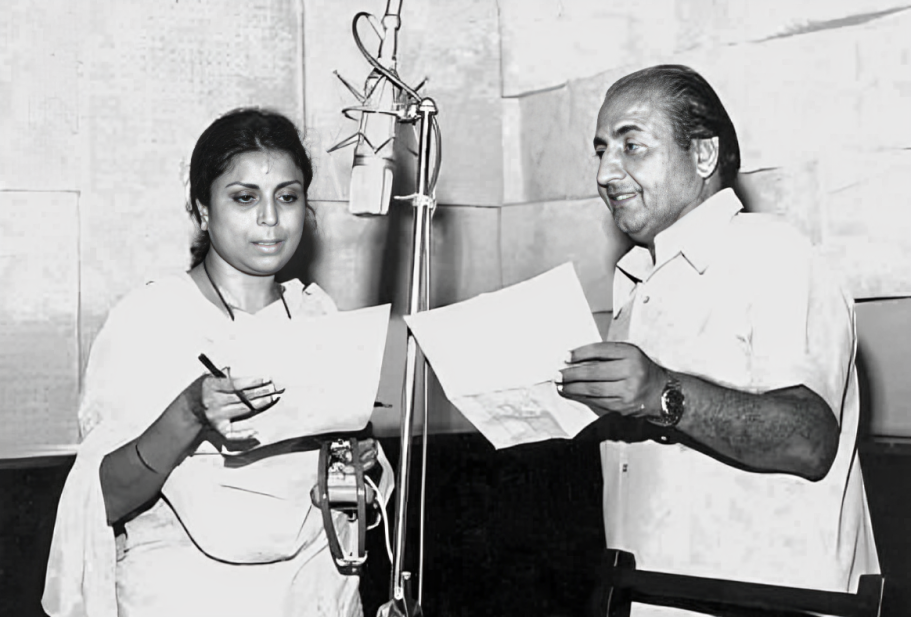
Next She sang for Nashad in the film “Darwaza (1954),” a production of Ismat Chugtai, directed by Shahid Lateef. One of her songs from the film, “Ek Dil Do Hain Talabgar Badi Mushkil Hai,” went on to become famous. In the same year, she sang a few lines in O.P. Nayyar’s hit ensemble song “Mohabbat Kar Lo Ji Bhar Lo Aji Kisne Roka Hai” with Mohammed Rafi and Geeta Dutt for the film “Aar Paar,” which remained her only OP Nayyar song.
Suman Hemmady married Mumbai-based businessman Ramanand Kalyanpur in 1958, who greatly encouraged her in her pursuit of becoming a singer. He accompanied her to every recording session after their marriage. The couple has a daughter named Charul Agni, who is settled in the United States. Her granddaughter, Aaishanni Agny, returned to India and opened an NGO in Mumbai in her grandmother’s name.
Success
In the golden era of Hindi film music, Suman Kalyanpur’s collaborations with legendary composers like Shankar Jaikishan, Roshan, Madan Mohan, S. D. Burman, N. Datta, Hemant Kumar, Chitragupta, Naushad, S. N. Tripathi, Ghulam Mohammed, Kalyanji Anandji, and Laxmikant–Pyarelal resulted in timeless melodies. Some of her famous films were Miyan Bibi Razi (1960), Baat Ek Raat Ki (1962), Dil Ek Mandir (1963), Dil Hi To Hai (1963), Shagoon (1964), Jahan Ara (1964), Sanjh Aur Savera (1964), Noor Jehan (1967), Saathi (1968), and Pakeezah (1971).
Despite facing tough competition in the industry, Suman’s beautiful voice and emotional depth earned her a devoted fan base. Her fans still remembered her with love and respect. Suman Kalyanpur’s filmography is extensive, where she sang different types of songs proving her versatility and talent. She sang in many languages, like Hindi, Marathi, Bengali, Assamese, Gujarati, Kannada, Angika, Bhojpuri, Rajasthani, Odia, and Punjabi.
Some of her most memorable songs include: Garjat Barsat Saawan Aayo Re (Barsaat Ki Raat), Bheegi Hawaon Mein Teri (Shriman Satyawadi), Na Tum Hamen Jaano (Baat Ek Raat Ki), Yun Hi Dil Ne Chaha Tha (Dil Hi To Hai), Unse Nazren Mili Aur Hijab Aa Gaya (Gazal), Bujha Diye Hain Khud Apne Hathon (Shagoon), Jo Hum Pe Guzarti Hai Tanha, and Thahariye Hosh Mein Aa Loon To Chale Jaaiyega, (Mohabbat Isko Kahete Hain), Mere Mehboob Na Ja Aaj Ki Raat Na Ja (Noor Mahal), Ganga Ram Ki Samajh Mein Na Aaye (Pehchan), Hai Naa Bolo Bolo (Andaz), Behna Ne Bhai Ki Kalai Se Pyar Baandha Hai (Resham Ki Dori), Tera Mera Mera Tera Mil Gaya Dil Dil Se (Nagin), and many more.
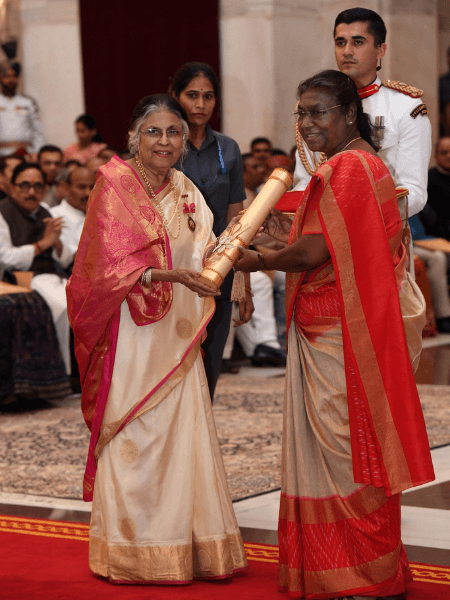
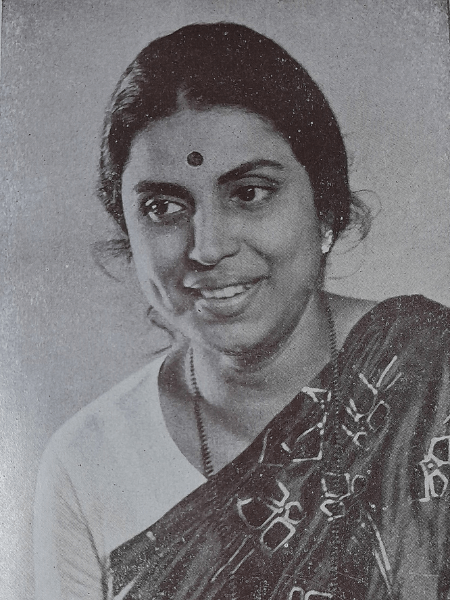
Famous Collaborations
She recorded some popular duets with male singers Mohammed Rafi, Manna Dey, Mukesh, Talat Mahmood, and Hemant Kumar, but her most memorable duets are with Rafi like Dil Ek Mandir from Dil Ek Mandir (1963), Mujhe Ye Phool Na De from Ghazal (1964), Tumne Pukara Aur from Rajkumar (1964), Bad Muddat Ke Yeh Ghadi Ayee from Jahan Ara (1964), Ajahuna Aye Balama from Sanjh Aur Savera (1964), Parbaton Ke Pedon Par Shaam from Shagoon (1964), Tujhe Pyar Karte Hain from April Fool (1964) Thehriye Hosh Mein Aa Loon from Mohabbat Isko Kahete Hain (1965), Na Na Karte Pyar Tumhin Se Kar from Jab Jab Phool Khile (1965), Itna Hai Tumse Pyaar Mujhe from Suraj (1966), “Rahen Na Rahen Hum in Mamta (1966), Tumse O Haseena from Farz (1967), Ke Jaan Chali Jaaye from Anjaana (1969), Raat Suhani Jaag Rahi Hai from Jigri Dost (1969) and many more.
Her songs with Mukesh ji, like “Yeh Kisne Geet Chheda,” “Akhiyon ka noor hai tu,” “Mera Pyar Bhi Tu Hai,” “Dil Ne Phir Yaad Kiya,” and “Shama Se Koi Kehde,” are still popular.
Suman Kalyanpur has received numerous awards and accolads. She gets the Sur Sringar Samsad award thrice for the best classical song in a Hindi movie. She also gets the Lata Mangeshkar Award from the Maharashtra government in 2009. Suman gets the Gadima Award in 2015, and the Mirchi Music Lifetime Achievement Award in 2022. She was awardes the Padma Bhushan in 2023.
Comparison with Lata
A trained singer with great caliber, Suman Kalyanpur had a great career ahead. But there was a catch, her voice and style was so similar to Lata Mangeshkar. Because of the similarity, people often get confused between the two. Suman was aware of it and once said, “I was quite influenced by her in my college days; I always used to sing her songs. Meri aawaaz bhi nazuk aur patli thi (My voice was delicate and thin). What could I do?
“My voice is similar to Lata tai’s. But, if keenly listened to, a connoisseur can tell them apart. I sang every song to the best of my capacity. I never bothered about any comparisons people made. I never imitated anyone since I firmly believed in sticking to my own style of singing,” she admitted.
Suman Kalyanpur
Despite facing tough competition in the industry, Suman’s beautiful voice and emotional depth earned her a devoted fan base, which still remembered her with love and respect.
Suman Kalyanpur on IMDB







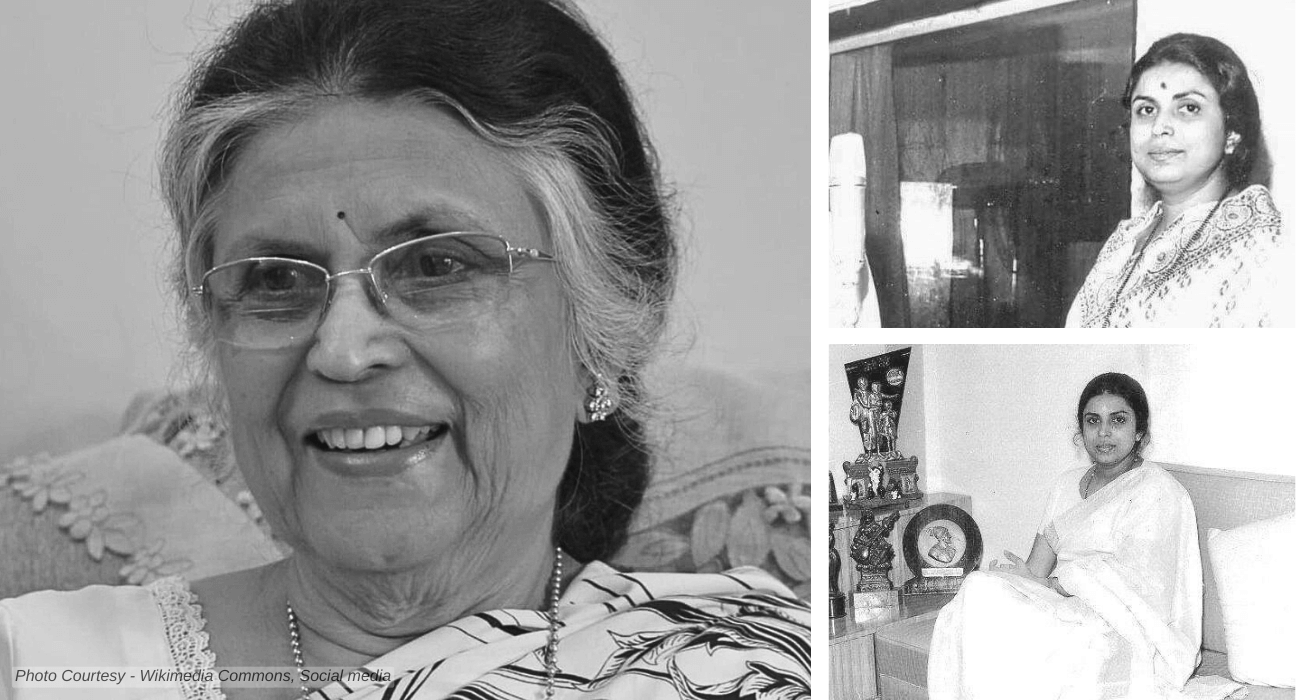





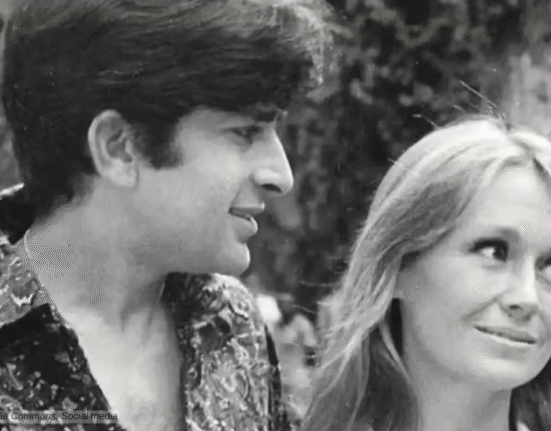
Leave feedback about this